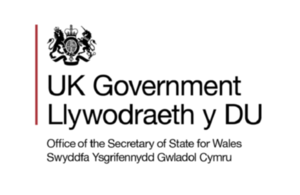We live in unusual times - but for Welsh companies, it's business as usual
The Secretary of State for Wales says he is impressed by the positive attitude of Welsh businesses post the EU referendum vote

It was a seismic shock to the nation. But the referendum is now over, and - at the risk of minimalising what has just happened - we need to respond to the new situation.
Pundits and commentators have spent days wallowing in the result. By contrast, the business, council and university leaders I have met in Wales this week have been refreshingly pragmatic and practical.
Among the groups I met were the Institute of Directors and the Welsh CBI. Their attitude was impressive - already pivoting to how a twin track of access to a single European market and exploring opportunities elsewhere might benefit Wales. Sometimes we forget that for the entrepreneur, change means opportunity, and there are opportunities out there.
Our Welsh university sector has strong links to Europe, but our expertise is also attractive to students and researchers across the wider world. University heads are already turning their minds to how their business model will work in this new firmament.
We may live in unusual times, but certainly for our Welsh companies, it’s back to business as usual.
My job, as Secretary of state, is to provide positive and optimistic leadership. What business doesn’t like is uncertainty. What it does like is the Government championing ambitious projects and investment, demonstrating that Wales is open for business.
What was also clear from my meetings this week is that, from the private to the public sector in Wales, there is a belief that the referendum mandate doesn’t mean we should now rush to trigger Article 50 and trigger Britain’s formal withdrawal from the EU. We need to look in a cool and measured way at what kind of trade arrangements or association work best for Britain and Wales.
Whether Britain ends up adopting a Canadian, Swiss or Norwegian model, this complex process will not benefit from undue haste. There is no clamour in the European Council for us to sign article 50 in any hurry. Instead, there is an acknowledgement that – while the EU does wish to see a British blueprint – that should be the product of careful study. Much of that work will fall to the new EU unit which is being set up by the UK Government to examine the many points – from the status of Britons abroad to trade treaties – which stem from the June 23rd vote.
Everyday life in Britain will not change until we leave the EU. Wales will continue to receive the funding and all the other benefits to which EU membership entitles us.
We enter these extensive negotiations with an economy in good shape – as the Chancellor said, we did fix the roof while the sun was shining. Wales enjoys an increasingly dynamic economy and an employment rate outpacing the rest of the country.
Our challenge is to maintain that growth as we prepare to leave the EU and not let the challenges ahead derail us.
Wales is a net beneficiary of EU funding, and inevitably much of the public comment so far has revolved around how that gap will be plugged. I will be working around the cabinet table and continue my discussions with the First Minister to protect Wales’ interest.
However, I think there is a growing recognition that the previous model was unsustainable. The debate needs to be on a higher level rather than simply seeking a series of guarantees to underwrite the money Wales currently receives from the EU.
Simply to replicate the model before June 23rd misses the point. Structural funds – while helpful – did not always deliver on the hopes and promises. Some of the conditions were questionable and the outcomes unclear. Working closely with Local Authorities and the private sector is key to future proposals.
We need to move on and keep building the entrepreneurial dynamic economy that we now see across the country, encouraging the job creators to invest here and using welfare reform to encourage more people back to work.
On a general note, much has been made of our fractious national mood in recent days. There is no doubt the referendum campaign led on occasion to unexpectedly nasty levels of vitriol, finger pointing and name-calling, much of which was amplified by the noisy echo chamber of social media. The referendum result is seen by some to speak of a country divided by age, class, and geography. A febrile atmosphere in Westminster politics combined with reports of hate crimes - something Welsh council leaders have noticed - have added to a general air of despondency hanging over the country.
It is time now to say: enough. The referendum has produced a result, it cannot be revisited and we need to abide by it. The challenge is to make the new arrangements work for Welsh people – whether they voted to leave or stay – and get the best result for Wales.
These are questions the UK Government will tackle over coming months.
There is no question that on June 23 voters took a step that surprised the pundits and pollsters, upended the political establishment and sent shockwaves through wider society.
But the Welsh people have repeatedly shown themselves resilient to major upheaval. My belief is that, while we head down an untrodden path, that spirit of togetherness will guide us again.